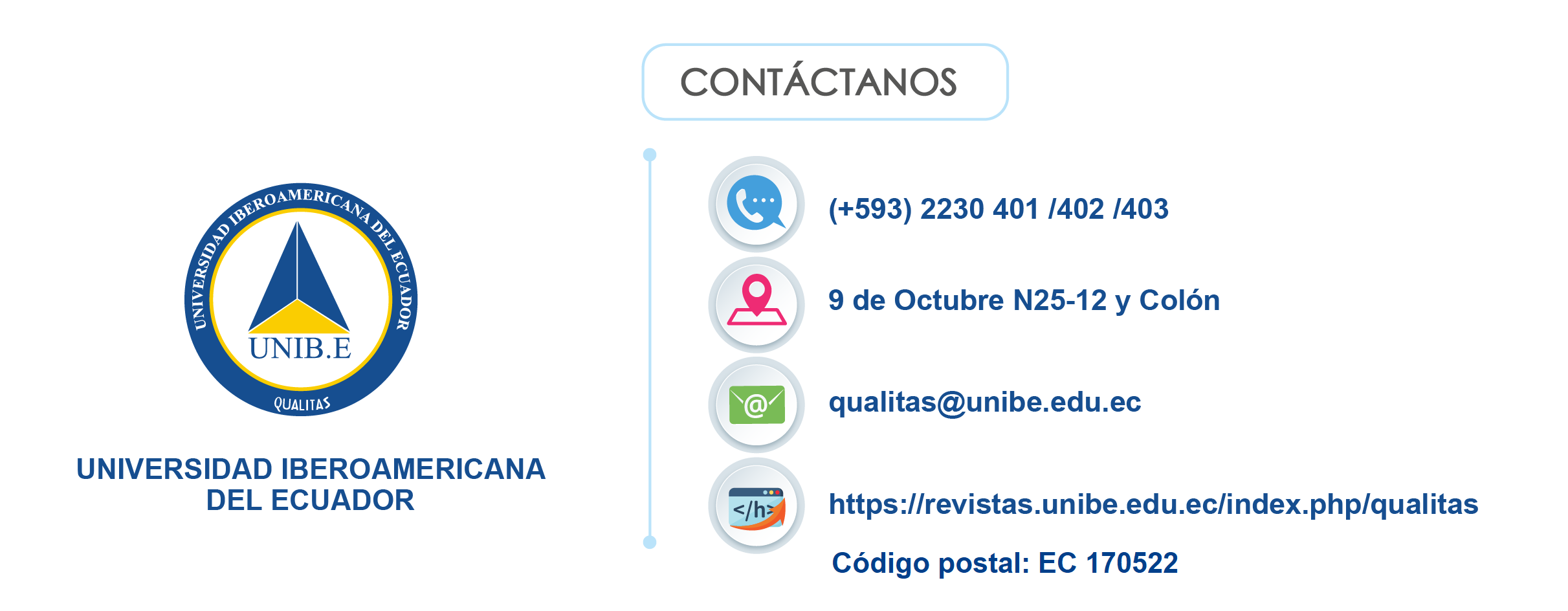Teogia as a fundamental ontology of management in the Bolivarian National police from assertive intelligence
DOI:
https://doi.org/10.55867/qual29.06Keywords:
assertive intelligence, management, phenomenology, teogía, Bolivarian National PoliceAbstract
Management refers to “leadership, direction and decision-making in all forms of society” (Drucker, 1973, p. 12), where emotions and leadership take on importance in an intelligent way to improve performance and satisfaction at both the individual and organizational level. In this context, the present research arises, whose purpose is to reveal the fundamental ontology of the management of the Bolivarian National Police from assertive intelligence, addressed in the interpretive paradigm, with a qualitative approach and the hermeneutic phenomenological method of Heidegger (1927) as a logic of action for the understanding and interpretation of the phenomenon from the lived experience of key informants in the exercise of their praxis. Therefore, the understanding of emotional intelligence influences decision-making, organizational well-being and the performance of the institution. The result of this research allowed to build and present a new Assertive Intelligence Management Theory (TEOGIA), a fundamental ontology that guides the understanding of police management from an emotionally intelligent perspective.
Downloads
References
Beal, D., Trougakos, J., Weiss, H., &Dalal, R. (2013). Affect spinand the emotion regulation process at work.J. Appl. Psychol. 98, 593–605.Doi: 10.1037/a0032559.En: https://psycnet.apa.org/record/2013-12146-001. Fecha de consulta: 05 de diciembre de 2023.
Chiavenato, I. y Sapiro, A. (2011) Planeación estratégica. Fundamentos y aplicaciones. Editorial Mc Graw Hill. México. 2da. Edición
Código de Ética para la Vida en la Investigación (COCEVIN). (2011). Código de Ética para la Vida. Ministerio del Poder Popular para Educación Universitaria, Ciencia y Tecnología (MPPEUCT). Caracas, Venezuela.
Cooper, R., y Sawaf, A. (2004). Executive EQ: Emotional intelligence in leadership and organizations. New York: Grosset/Putnam. En: https://acortar.link/rPMk6j. Fecha de consulta: 05 de septiembre de 2023.
Covey S. (1989). 7 Hábitos De La Gente Altamente Efectiva. La revolución ética en la vida cotidiana y en la empresa. Paidós. En: http://200.70.33.130/images2/SGHPE/7%20HABITOS.pdf. Fecha de consulta: 05 de septiembre de 2023.
De la Plaza, J. (2014). Inteligencia asertiva. Editorial.V&R. Chile ISBN-13: 978-9876124256
Drucker, P. (1973). Gerencia: Tareas, Responsabilidades y Prácticas. 6taedición. 2da reimpresión. Argentina. pp. 547
Drucker, P. (2002). Los Desafíos de la Gerencia para el Siglo XXI. Editorial Norma. Bogotá. Colombia
Etkin, J. (2009), Gestión de la complejidad en las organizaciones, Granica S.A., Buenos Aires.
Escudero, J. (2011). El joven Heidegger y los presupuestos metodológicos de la fenomenología hermenéutica. En: https://revistascientificas.us.es/index.php/themata/article/view/494/459. Fecha de consulta: 05 de septiembre de 2023.
Gil’Adi, A. (2010). Inteligencia emocional. Editorial Norma. México
Goleman, D. (1996). Inteligencia Emocional. Buenos Aires: Javier Vergara Editor S.A.
Goleman, A. (2006). El líder resonante crea más. El poder de la inteligencia emocional. Editorial Norma. Bogotá
Guba E. y Lincoln Y. (1994). Paradigmas en pugna en la investigación cualitativa. En: http://www.ustatunja.edu.co/cong/images/curso/guba_y_lincoln_2002.pdf . Fecha de consulta: 18 de noviembre de 2023.
Grant, A. (2013). Dar y recibir: un enfoque revolucionario hacia el éxito. Libros de pingüinos. En: https://www.academia.edu/106277357/Dar_y_recibir_ADAM_GRANT. Fecha de consulta: 22 de septiembre de 2023.
Gross, J. J. (1998). El campo emergente de la regulación de las emociones: una revisión integradora Rev. Gen. Psychol. 2, 271–299. doi: 10.1037 /1089-2680.2.3.271. En: https://es.scribd.com/document/459553253/CONCIENCIA-PLENA-Y-LAREGULACION-EMOCIONAL. Fecha de consulta: 15 de noviembre de 2023.
Gurdián, A. (2007). El Paradigma Cualitativo en la Investigación Socio-Educativa. En: https://acortar.link/na7xVc. Fecha de consulta: 15 de abril de 2023.
Heidegger, M. (1927). Ser y tiempo. Ciudad de México, México: Fondo de Cultura Económica (2004). Comportamiento organizacional. Prentice Hall. Pearson educación, décima edición, México. Fecha de consulta: 18 de noviembre de 2022.
Hernez, G. & Hughes, R. (2004) ‘Leadership development: Past, present, and future’, Human Resource Planning 27(1): 24-32. En: http://home.mycybernet.net/~taylors/Publish/leadership%20development.pdf. Fecha de consulta: 08 de agosto de 2023.
Hochschild, A. (1979). Emotion Work, Feeling Rules, and Social Structure. En: https://acortar.link/3xoS6S. Fecha de consulta: 15 de octubre de 2023.
Martínez, M. (2011): La investigación en educación, Edit. Trillas, México.
Morse J. (2005). Asuntos críticos en los métodos de investigación cualitativa. Universidad de Alicante. En: https://acortar.link/nsTW85. Fecha de consulta: 03 de abril de 2023.
Navarrete, J (2004). Sobre la investigación cualitativa. Nuevos conceptos y campos de desarrollo. Revista Investigaciones Sociales Año VIII N° 13,[Unmsm / Iihs, Lima. En: https://revistasinvestigacion.unmsm.edu.pe/index.php/sociales/article/view/6928. Fecha de consulta: 03 de abril de 2023.
Plan Socialista de la Patria 2019-2025 de Venezuela. En: https://acortar.link/jmJ8VQ.Fecha de consulta: 05 de diciembre de 2022.
Robbins, S. y Coulter, M. (2004). Comportamiento organizacional. México: Person. En: https://acortar.link/MrUZYA. Fecha de consulta: 05 de diciembre de 2023.
Senge, P. (2011) La Quinta Disciplina: El arte y la práctica de la organización abierta al aprendizaje. Editorial Granica (Grupo Editorial Norma). Barcelona.
Schiffman, L y Lazar, L (1997) Comportamiento del consumidor. 5rd.Prentice Hall Hispanoamericana S.A. México.
Von Scheve, C. (2012). Emotion regulation and emotion work: two sides ofthesamecoin? Front. Psychol. 3:496. En: https://www.mendeley.com/catalogue/ba64a887-68ce-3d08-90c7-edd79b833195/. Fecha de consulta: 15 de octubre de 2023.
Published
How to Cite
Issue
Section
License
Copyright (c) 2025 Ana Cristina Chirinos Martinez, Arturo Ramón Ramos Saez

This work is licensed under a Creative Commons Attribution 4.0 International License.



















